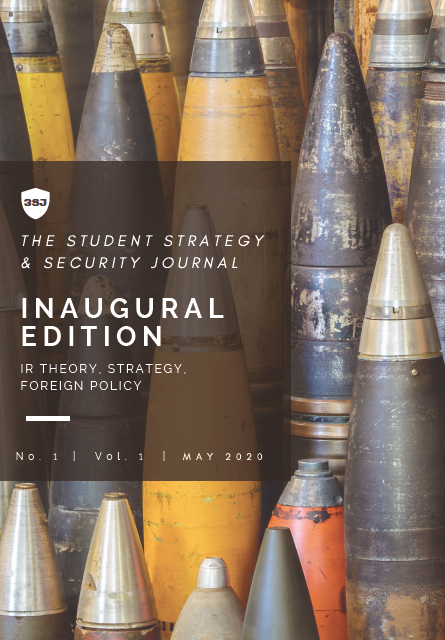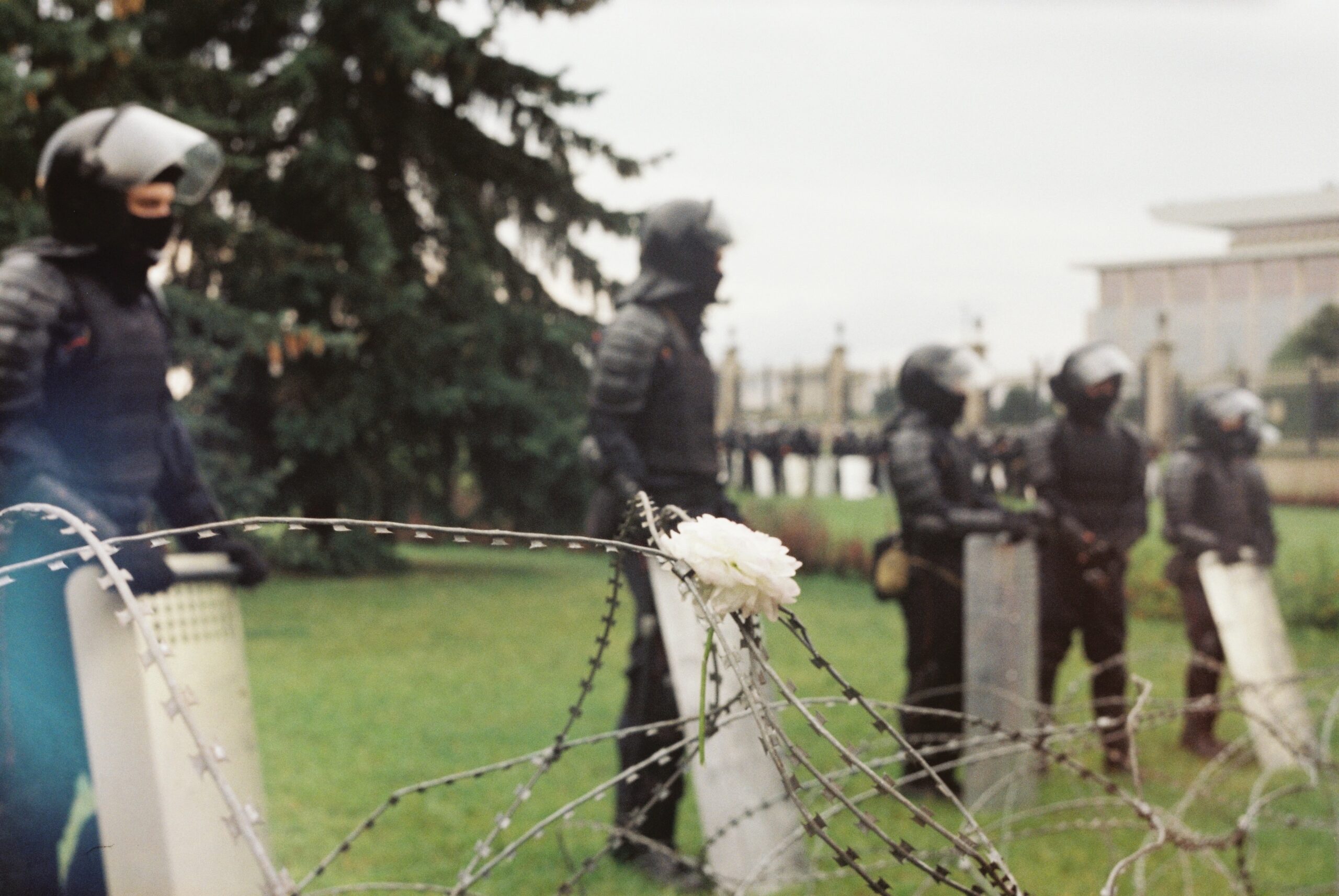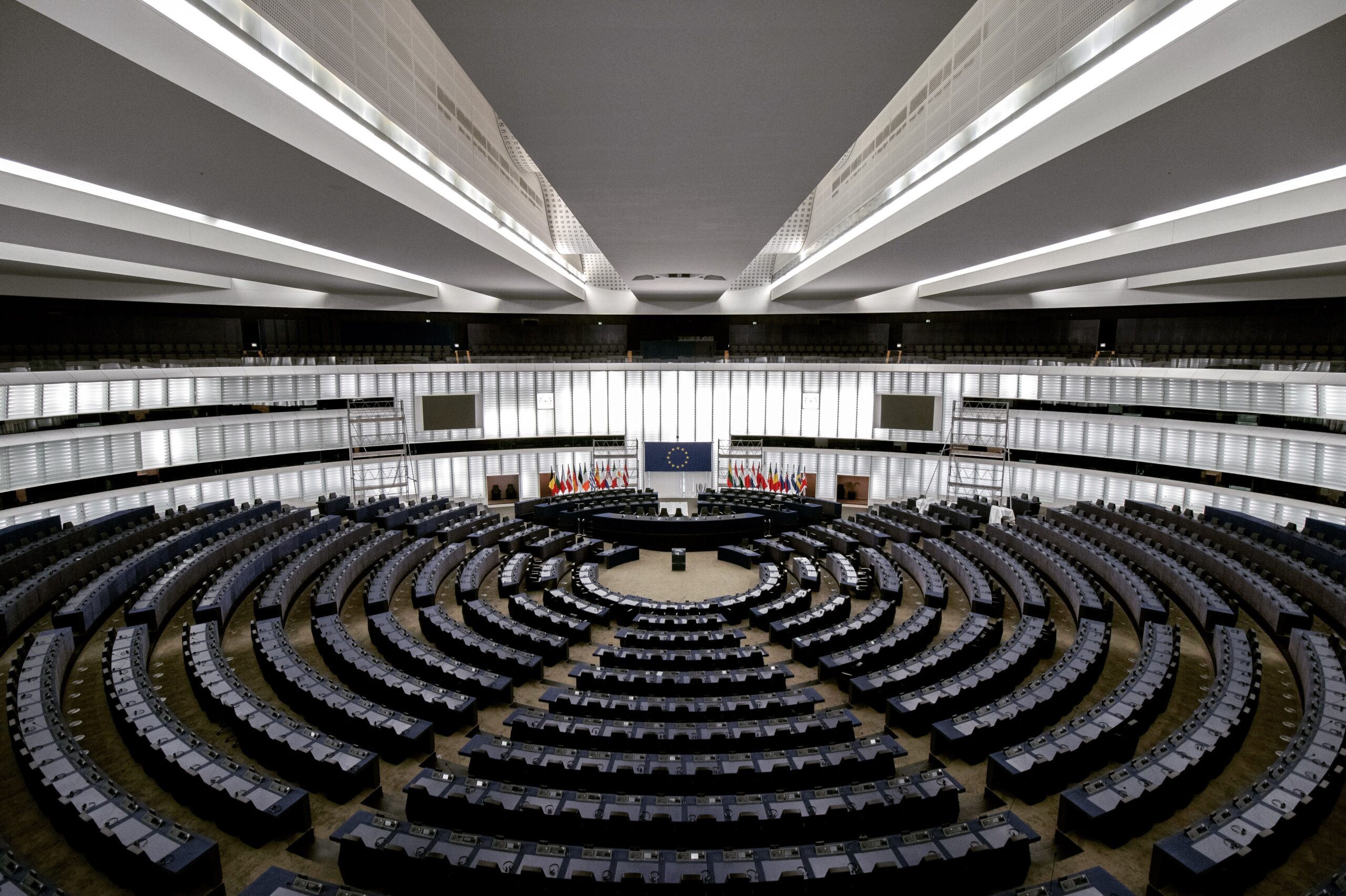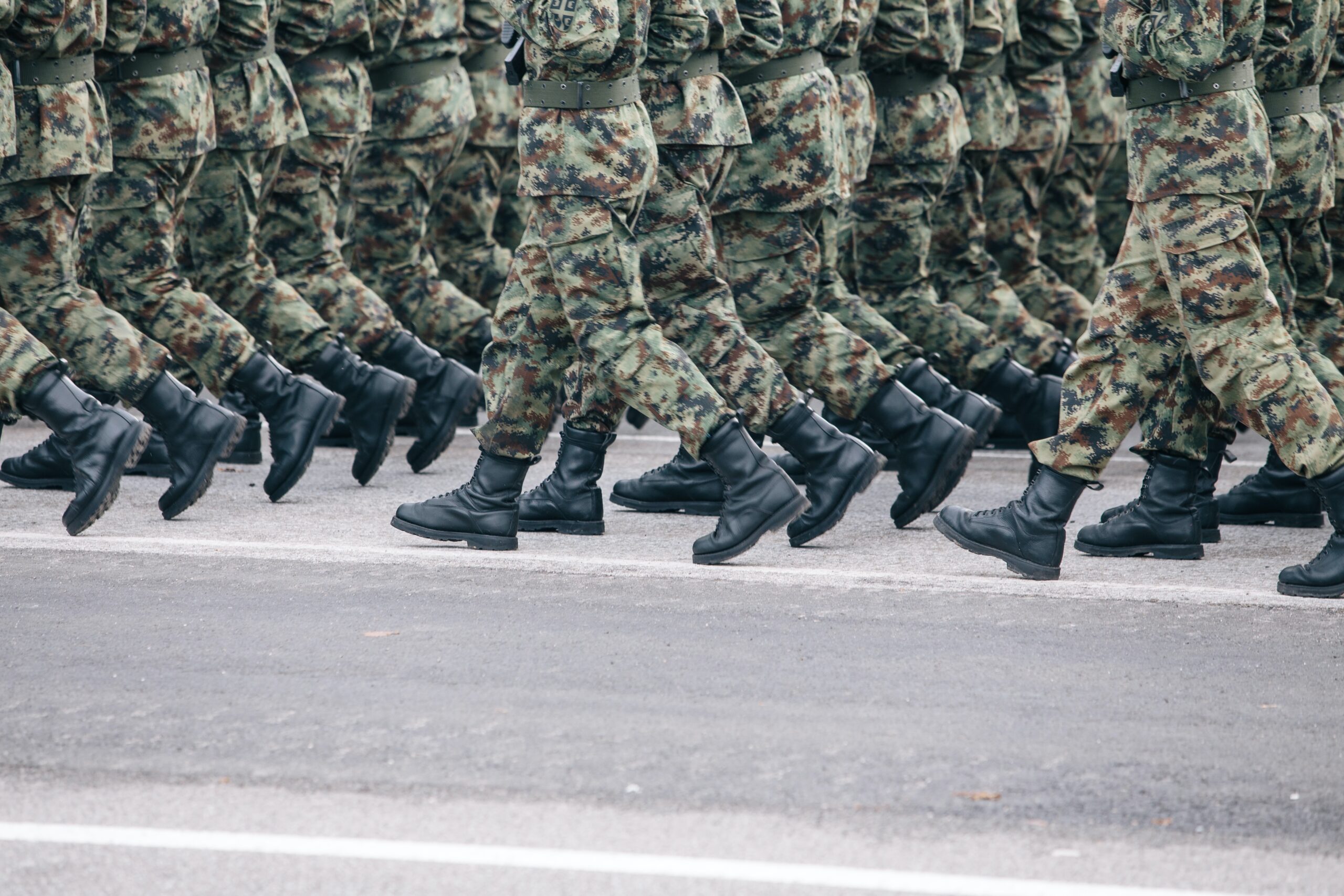FIRST EDITION
May 2020
First Edition
This Edition features wide-ranging themes: from IR Theory to Leadership, Foreign Policy, and Grand Strategy. You can learn about Trump’s National Security Strategy, Eurocentrism in International Relations, or the potential of academia in informing the UN’s counterterrorism strategy. If you’re still not convinced, check out our Special Section for a piece of Samurai warfare in League of Legends!
Salla Lampien
Feminism & International Relations Theory
Global politics are filled with gender inequalities, and in the discipline of International Relations (IR), men and masculinities have disproportionate power both in practice and academia. Feminist IR, which has been flourishing separately but not truly impacting the field as a whole, analyses the discipline from the perspective of the marginalised to contest the power of mainstream IR. Inequalities, which are built into the historical legacy of the international system, are taken into the analysis. The aim is to reveal a better understanding of all forms of violence, therefore informing the discipline about causes and consequences of war that are missing from traditional approaches. Feminist IR has four core tasks: to indicate how the mainstream IR excludes and has bias in terms of its state-centric analysis and positivistic methods; to make women visible as social, economic, and political subjects in international politics; to analyse how gender inequalities are embedded in IR; and to empower women as subjects of knowledge by building theoretical understanding of their lived experiences. Feminist IR offers a view for International Relations that traditional IR fails to see, and it should be considered as a valued part of the practice and discipline.
Ellen Stirling
Eurocentrism & International Relations
This essay begins by presenting a broad overview of Eurocentrism in the context of international relations (IR) theory. It addresses the difficulty in identifying a comprehensive definition of Eurocentrism and gives examples of where it is present in scholar’s interpretations of the international system, including assumptions surrounding the Treaty of Westphalia and Modernisation Theory. The rise of anti-Eurocentric work and the identification of different forms of Eurocentrism has been a crucial step in addressing the epistemological Eurocentric bias present in aspects of IR theory. Theories such as Realism and Liberalism have Eurocentric bias woven into their very foundations, attributed to the structure of the international system at the time of their formation. However, Eurocentric bias can also be identified in a number of contemporary IR theories, including Western Feminism and the capitalist system of Marxism, which are discussed in depth. Finally, this essay examines how Postcolonial theory works to reframe security issues, removing the bias of Eurocentrism that is found in other forms of IR theory.
Max George
Minsk’s Russia Problem
Despite widespread assumptions of Russia and Belarus as close allies in the post-Soviet period, this relationship – characterised by significant imbalances – is evolving as Minsk attempts to reduce its political and economic dependence on Russia before it loses the freedom to maintain its sovereignty in the face of Russian intentions for closer integration. This paper will argue that a strategy of ‘triangulation’ results, as Belarus seeks to forge for itself a neutral position: increasing its freedom to operate internationally without Russia, while avoiding dangerously antagonising Moscow. The paper will demonstrate that a predominance of domestic considerations for Minsk leads it to resist Russian integration plans and open up alternative diplomatic options. In addition, it will explain the importance of Belarus’s economic dependence on Russia, and how this will limit any westward drift. Finally, the paper will explore risks to this Belarussian strategy of seeking an ‘in-between’ status: first, that it is unable to rebalance away from Russia, leading to domestic instability; and second, that an uncertain presidential succession in Minsk provokes Russian fears of a more decisive westward shift.
Blair Graham
Responsibility to Pretext
Conventional wisdom informs us that the proliferation of humanitarian interventions constitutes a normative development in international politics as, freed from the constraints of power politics following the collapse of the Soviet Union, Western policymakers are now at liberty to pursue a more idealistic foreign policy and concern themselves with halting human suffering wherever it may be found. Using the case studies of the NATO interventions in both Kosovo and Libya, this essay argues that this reading of humanitarian intervention has no foundation in reality. Instead, terming such interventions “humanitarian” serves as a very useful pretext for Western planners seeking to mask the self-serving and imperial nature of their foreign adventures. To fully underscore this point, this essay assesses in detail the motives, means, and outcomes of the two aforementioned cases. This criterion demonstrates that the interventions in both Kosovo and Libya were antithetical to “humanitarianism” and casts a very dark shadow over the concept of humanitarian intervention more broadly.
Robert Hart
Trump’s National Security Strategy
The 2017 National Security Strategy of the Trump Administration in many ways portrays two distinct conflicting personalities – one of ‘Principled Realism’ and one of a continued promotion of international cooperation. Through a close comparison of the 2017 National Security Strategy and the published strategies of the previous two administrations (Presidents Barack Obama and George W. Bush), I argue that the continuities held next to the explicit differences portrayed in the 2017 document are illustrative of a larger conflict between a ‘Principled Realist’ administration and the traditional view-point of continued internationalism from the foreign policy establishment bureaucracy.
Alexander Olteanu
Ideas of Power and the Power of Ideas
The concept of ‘strategy’ is making a remarkable comeback in the 21st century, as balance-of-power politics is being played again, this time truly at the global level. This essay investigates the genesis of ‘Strategy with a capital “S”’ in the writings of Jomini and Clausewitz in the first half of the nineteenth century and the dynamics of its theoretical interpretation and practical application from the Napoleonic Era to today. It does so by applying the ‘4 As’ of interpretive hermeneutics – prefigurative Alignment, configurative Application, refigurative Adaptation and transformative Articulation – to this iterative investigation of Jomini’s and Clausewitz’s work. This methodology results in the emergence, from the interstices of their competing and complementary approaches to War and Strategy, of a three-dimensional concept of ‘Strategy’ aligning Policy Process, Power Praxis and Political Purpose. It also gives rise to a corresponding analytical framework of the deployment of ‘Strategy’ in various spatio-temporal environments, that combines various leadership modalities with a full continuum of conflictual systems. This essay concludes by arguing that both these elements of the Strategy-as-practice toolkit remain remarkably current and eminently applicable to the rapidly evolving geopolitical ecosystem of the 21st century.
Rory McDowell
Comparing and Contrasting Strategies
The four men that are the focus of this essay are each a giant in their own right, often still regarded as heroes in their own country and further afield. Alexander the Great was undefeated on the field of battle from Greece to India, Louis XIV holds the record for longest reign of a monarch, Frederick the Great won the Seven Years War against all odds, and Napoleon won victory after victory on his way to conquering most of continental Europe. While warfare and expansion feature predominantly in the lives of all four men, the strategies employed both in their aims and executions differ wildly, but there are also many striking similarities. In this essay I will compare and contrast these strategies, by first seeking to understand the aims and motivations of each ruler, then examining through what means they attempted to achieve these goals. This will be followed by an overall comparison and evaluation of the men as strategists.
Julien Fehlman
Beyond Security Studies
The decade between 2006 and 2016 witnessed a global emphasis on security-based means for combatting terrorism, which have produced an extremely costly mixed-bag. As a result, The United Nations and the Swiss government co-hosted a two days conference in Geneva in April 2016 to devise guidelines regarding the prevention of violent extremism, in anticipation to the release, in June the same year, of the United Nations’ Secretary General Plan of Action to Prevent Violent Extremism. The present study overviews the academic literature on terrorism with an aim to identify areas of research and resources worth considering to develop further the United Nations’ strategy to prevent violent extremism. This research uncovered a consensus in academia regarding the failure of military-based counterterrorism strategies since September 11, 2001, and dismisses biological explanations for terrorism. While it stresses that attempts at discovering a typical psychological profile of terrorists have failed, recent avenues in psychological research are worth considering. Above all, however, the necessarily multidisciplinary nature of research related to terrorism ought to be complemented with insights from the development sector. The experience and up-to-date knowledge of development scholars and institutions working on the field represent an asset that has been so far vastly ignored.
Clémence Emeriau
The Security Dilemma
The security dilemma, a cornerstone of the realist approach to International Relations, is a disputed theory. While some claim it is an inescapable reality, others have described it as being a self-fulfilling prophecy. Here, the faulty assumptions of the security dilemma, its self-fulfilling logic, and ways to deactivate and transcend it, will be explored.
William Jacob Davis
Military and Civilian Leadership
Military and civilian leadership are often compared in an effort to borrow successful methodologies from each field for use in the other, with the militaries being considered as producers of some of the premier leaders in the world, regardless of country. What defines leadership and leaders though is contested. While leaders refer to anyone with followers, and leadership is the condition of having said followers, it is the operant conditioning, follower expectations/consequences of failure, and level of control over followers that create stylist leadership differences.
Lauren Bergin
Samurai Warfare in League of Legends
In a world where the virtual realm dictates our knowledge of history, it is essential to understand the power of video games in public conceptions of historical warfare. Using the case of the samurai warrior Yasuo from the online game League of Legends, I have shown that despite the game’s fantastical nature the character design is influenced by historical facts. Yasuo’s character exhibits several hallmarks of the original Japanese samurai, specifically in his weaponry and his ability toolkit. I therefore argue that Yasuo presents a different but by no means inaccurate portrayal of bushidō warfare.
Contact us
Become a contributor












